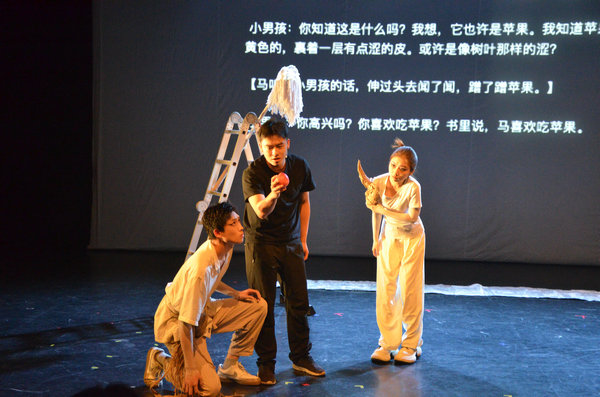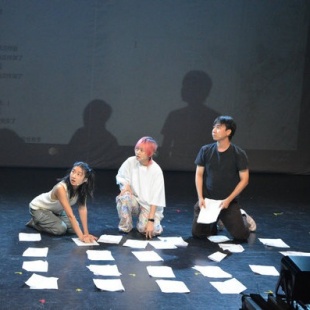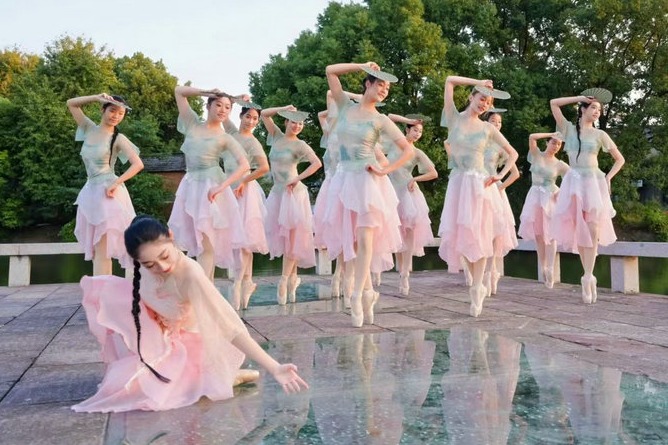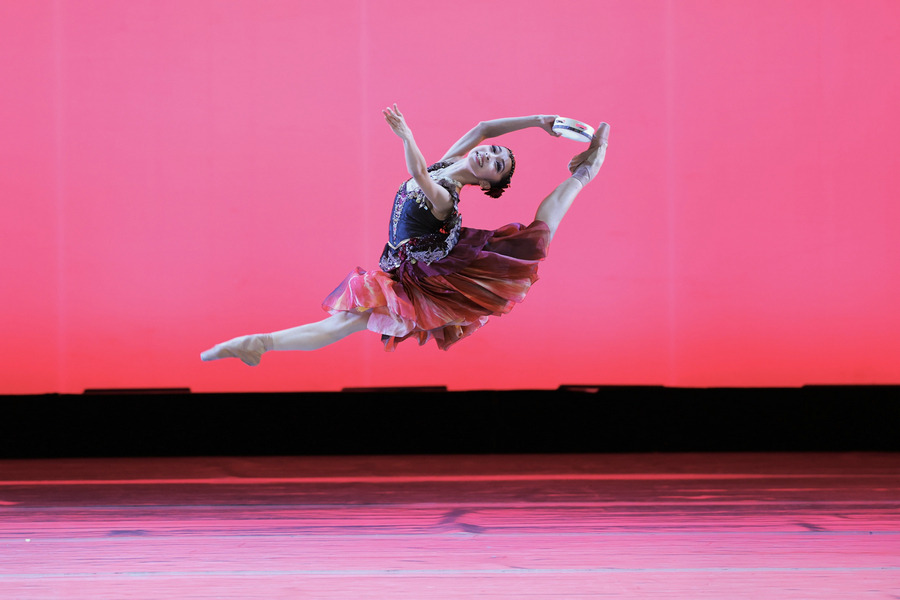Tech changes the theater game
New digital program brings together creators to make the stage more innovative and interactive, Li Yingxue reports.


The Digital Theater program also invited mentors from diverse fields, including theater arts, artificial intelligence, geophysics, and interaction design, to share their interdisciplinary insights.
Throughout the festival, participants not only gained theoretical knowledge and engaged in intellectual exchange but also immersed themselves in creation, completing the full cycle from concept to stage.
Digital theater is a relatively new concept that only emerged in the past few years, and the field has yet to settle on a single definition, according to Xiao.
Xiao explains that digital theater involves incorporating new technologies, such as AI and interactive systems, into live performances, which sometimes change the way plays are created and experienced.
"Our daily lives are already deeply intertwined with technology, so we hope theater can also reflect on the relationship between technology and the present," she says.
In Xiao's view, today's actors must learn how to work alongside AI and adapt their performances accordingly, while directors must understand how to use AI to shape the characters.
Among the works created, one left a particularly strong impression on her — a game-themed piece titled Pixel Escape, which tells the story of a non-player character from within a video game.
The creation process was highly collaborative. "The 25 participants came from very different backgrounds — some in theater, others in technology — and they complemented each other well," Xiao says. After deciding on a presentation form, the group divided up the work.





































